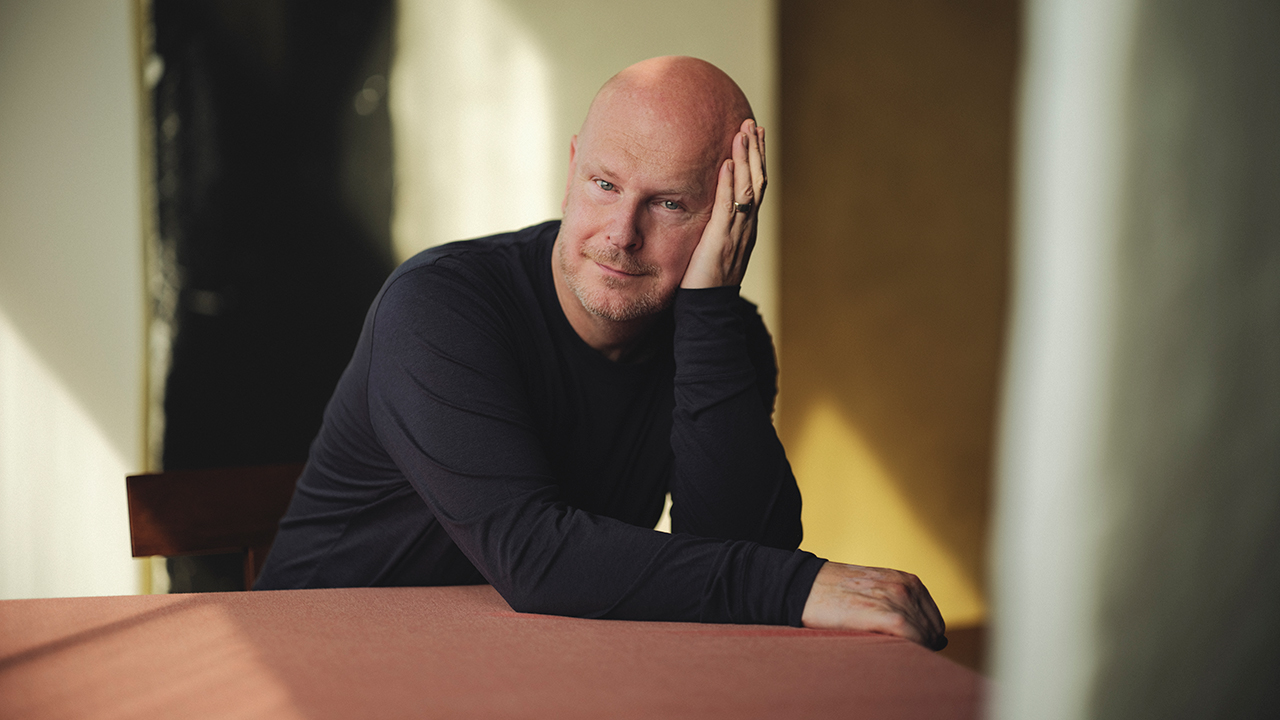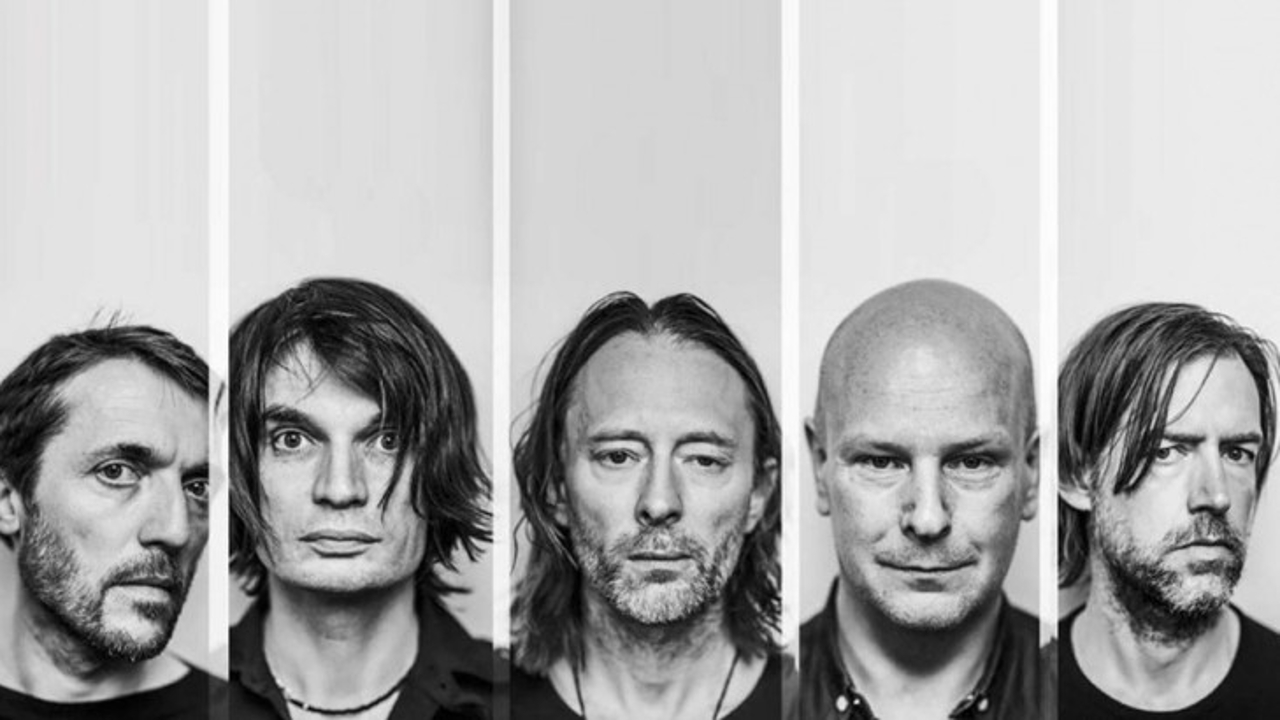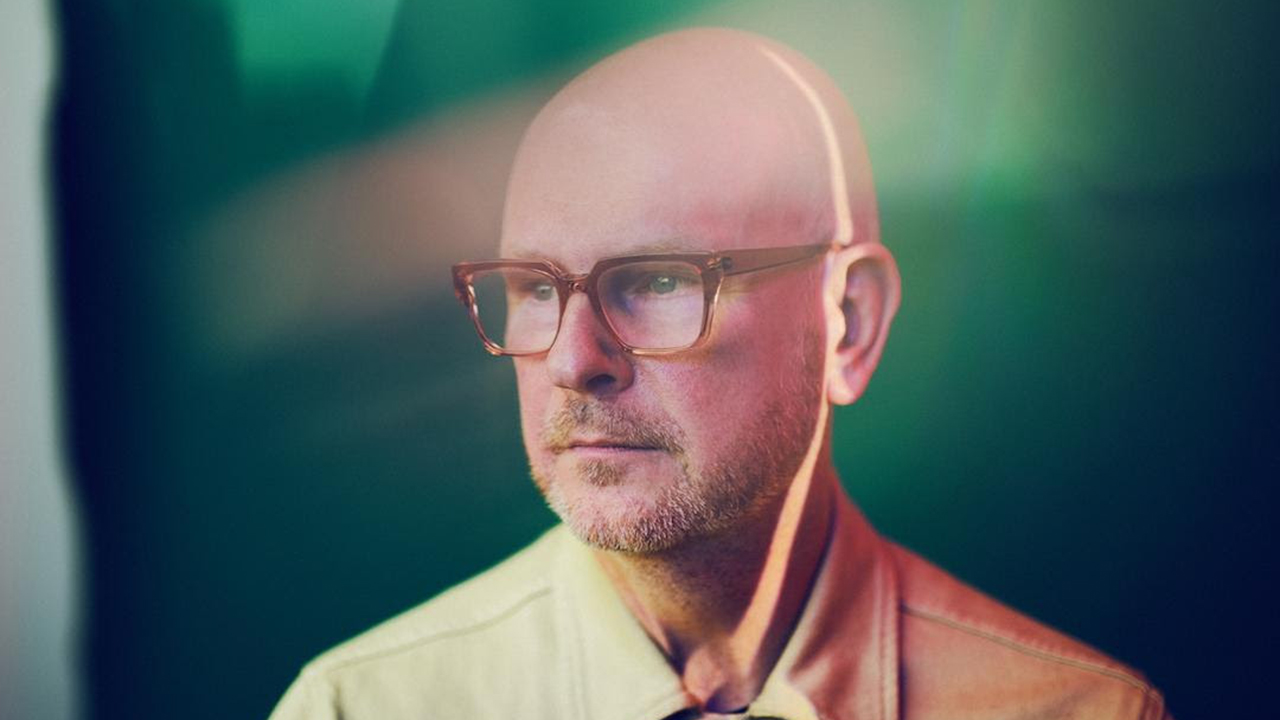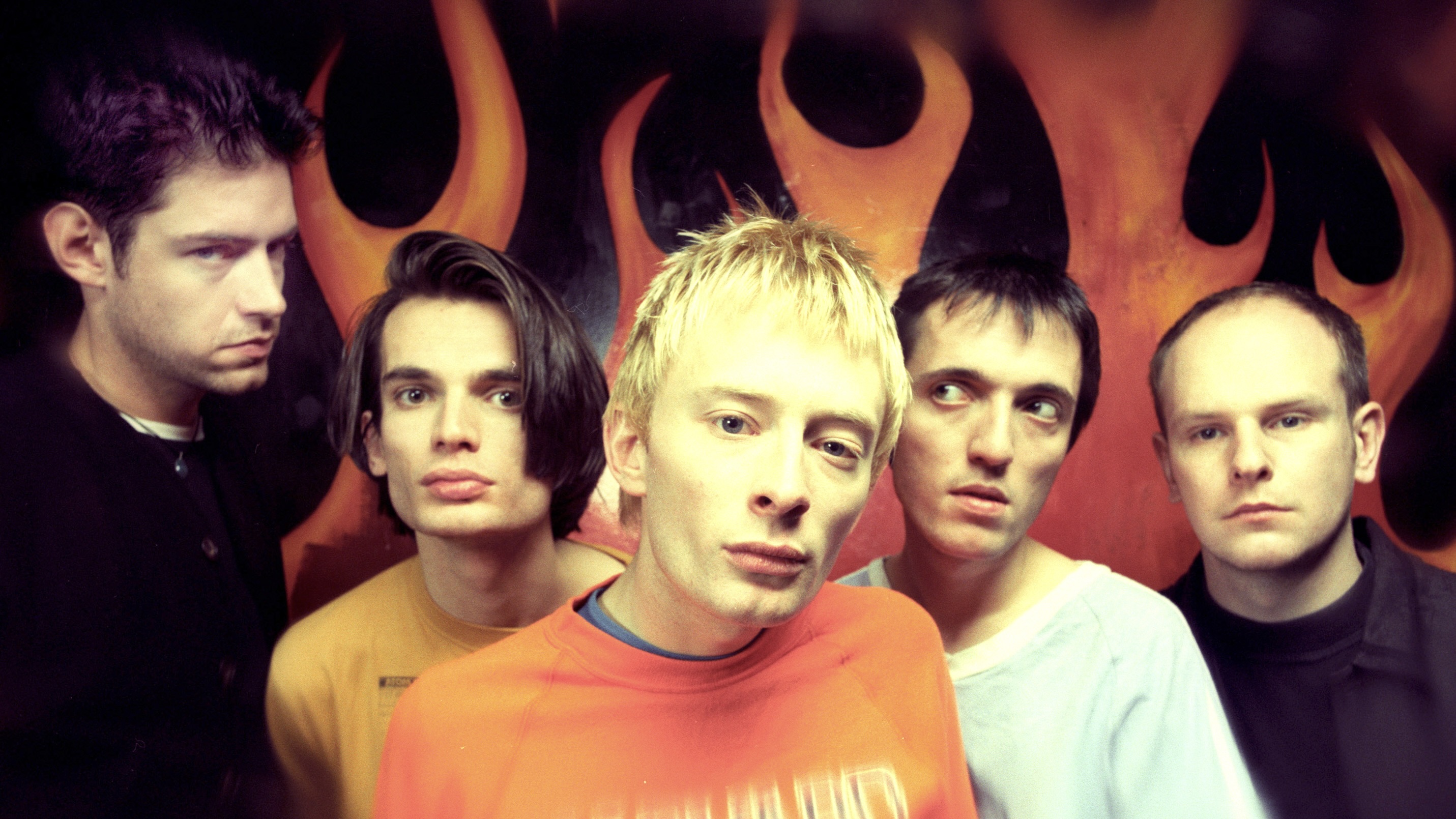
Barely two days into the recording sessions for his new album, Philip Selway sacked the drummer. This would usually indicate a bullish personality, monster ego or someone with impossibly demanding working methods. Probably all three. Except that Selway is none of those things. The drummer he dismissed happened to be himself. As it goes, it’s a pretty good illustration of the 55-year-old’s devotion to the bigger picture. Selway has always been about the communal cause, be it as one fifth of Radiohead, collaborative soundtrack composer or solo artist. As Prog quickly discovers during the course of our interview, the thoughtful and self-effacing Selway – a man who exudes the kind of quiet confidence that presumably comes with being a member of one of the biggest bands on the planet – is primarily concerned with the unexpected thrills of the creative process.
Born in Oxfordshire, Selway first met his future Radiohead bandmates at Abingdon School during the 80s. Prior to their signing to EMI in 1991, he studied English and history at Liverpool Polytechnic and worked for a time as a teacher, as well as playing drums for various touring musicians. Selway had been a budding songwriter in his teens, but decided to direct his energies into the democratic ethos of Radiohead, where writing credits were split equally.
His drumming style evolved as the band did. Early, rock-ish 90s albums Pablo Honey, The Bends and OK Computer gave way to experimental treasures of 2000’s Kid A, Amnesiac (2001) and The King Of Limbs (2011), with Selway embracing programming and a more nuanced, fluid approach. The only constants were his sure-fire rhythmic feel and his impeccable timing.
The same sense of curiosity has fuelled his solo career. In 2009 Selway played drums, guitar and sang occasional vocals on 7 Worlds Collide’s The Sun Came Out, Neil Finn’s all-star charity project that also featured Radiohead cohort Ed O’Brien alongside Eddie Vedder, Johnny Marr, Lisa Germano and various members of Wilco, among others. The bit firmly between his teeth, Selway released his largely acoustic solo debut, Familial, the following year.
In 2014, Weatherhouse was a marked step up, the songs more detailed and ambitious, making use of electronica and a greater palette of textures. This was reflected in Selway’s wider personnel, from the strings of The Elysian Quartet to multi-instrumentalists Quinta (aka London-based Katherine Mann) and Adem Ilhan, who also served as producer.
Now comes his best yet. Strange Dance is a beautiful collision of the formal and the abstract, a singer-songwriter album that manages to sound both epic and intimate. Selway has drawn upon his recent experiences composing scores for the Rambert Dance Company and film soundtracks for Let Me Go and Carmilla to remarkable effect, while also enlisting a bunch of proven-quality helpers including Hannah Peel, Adrian Utley, Laura Moody, Valentina Magaletti and the aforementioned Quinta.
“I had my collection of songs and I guess they felt like the kind of classic singer-songwriter thing, something that would’ve come out of Carole King and that whole scene,” he enthuses, still buzzing at the results. Prog is eager to find out more.

How has your recent soundtrack work played into Strange Dance?
One of the key things that came out of that was working with the cellist Laura Moody. I’d first come across Laura when I was working on Weatherhouse, which she played on as part of The Elysium Quartet. And from there I started working with her on soundtrack projects for Let Me Go and Carmilla, and Sea Longing [Radio 3 play, 2018]. With Strange Dance I had arrangement ideas that I wanted to explore. I could take them so far myself, but working with Laura allowed that extra degree of flexibility and speed in the process. I saw the potential for having these bigger arrangements and how they could work in the context of my musical ideas. It still felt very much of my world, but it was also opening up the doors to all those textures and that scale of what could be done.
So did you always see these songs as grand pieces?
That’s what I was aiming for in terms of the soundscape. But, weighed against that, I wanted the songs to be very up close as well, in terms of vocal delivery and lyrical content. I wanted to keep them conversational. The wild card for me was [drummer] Valentina Magaletti. I hadn’t expected that at all.
It was initially supposed to be you on drums, right?
Yeah, but I sacked myself after a day-and-a-bit, when I realised that I wasn’t getting to where I wanted to be, drumming-wise. I sat down with [producer] Marta Salogni and talked about what I wanted to achieve and the kind of textures I was hearing. She went away for the weekend and came back saying, “I’ve been speaking to Valentina. I think she would really work. You’re welcome!”
Were you listening to anything that informed your songwriting?
Absolutely. One key artist for me, who ended up playing on the record as well, was Hannah Peel. She has that songwriting side, of course, but I’ve also been watching what she’s brought to her soundtrack work over the past four or five years. There was an album that she did, Chalk Hill Blue [2020], with the poet and writer, Will Burns. And that really kind of informed me. Hannah was putting together these visceral soundscapes against very starkly honest words. And that I found really inspiring. Coming into it, I was imagining Strange Dance as a record that Carole King and [electronic composer] Daphne Oram might have made, a fantasy collaboration back in the day.
Given the various collaborators here, how open were you to songs changing as you went along?
I knew the songs would all work in and of themselves, but I went into the sessions with the attitude that they’re just a jumping-off point. And you have all these incredible musical voices put into the project. So it’s kind of creating a structure for all those different voices to really sing out and then seeing what happens. Salt Air, for example, was written very much with a kind of pastoral, Nick Drake feel in its original form. But Valentina did this incredible drum track to it in the studio, then Quinta and Adrian Utley came in the following week and tried it with a drone underneath. And these two worlds came out that I really liked, just leaning into that drone world and very expansive, angular strings. Suddenly, the whole song just took on this new soundscape. It was a sunny song in its original form, then became a kind of moody coastal song.

Was that also the case with the title track, which sounds very percussive and Tom Waits-ish?
Yeah. It was originally very much a piano ballad with strings. It sounded like something that could’ve been from Paul Buchanan’s solo album, Mid Air [2012], very small scale and quite effective. But then you have all these musical voices. Again, Valentina put down this amazing rhythm track, then everybody just responded to that. Hearing the strings in the context of this new drum pattern, there was this real tension between the two and it just brought out something more sinister. Hannah Peel did some lovely synth parts and a very otherworldly vocal, which then informed the brass arrangements. So the song just kept on growing and growing. And that happened over and over on this record. It made for very exciting sessions for me.
From what you’re saying, a lot of this seems to have been an exercise in trust as much as anything else…
Yeah, I think that’s a lovely way of putting it. All round it was a very supportive and open atmosphere in the studio. Everybody fed into that. It felt a truly collaborative process and that’s where I do my best work, I think.
Considering its inevitable effect on so many recent albums, how mindful were you of not making this a pandemic record?
I think everybody had their personal psychodramas during the pandemic. A lot of people were put back into a very introspective spot as well. And I think that’s what, emotionally, I found very interesting about the whole project. You don’t need to write about a pandemic to draw on those elements. There’s a song called Check For Signs Of Life, which is very much about going through those periods of big change and that sense of displacement that you can feel: the loneliness, the loss. But they’re very universal themes as well. I found that a very interesting kind of creatively fertile place to explore.
At the same time, do you think that backdrop gives the album an added sense of reflection?
I think the backdrop suited my personality [laughter]. I’m probably Mr Lockdown anyway!
So was it important to finish on an uplifting note with There’ll Be Better Days?
Absolutely. I finished Weatherhouse on a song called Turning It Inside Out, which ends with the line: ‘It’s kissing all my dreams away.’ On reflection, I liked the sentiment, but I wanted to leave with a more uplifting one on Strange Dance. And that feels like the emotional journey of the record anyway. It’s not trying to shy away from any difficult topics, but I wanted some sense of resolution, some sense of optimism in the lyrics. We’ve all had enough of the other side for the past few years, really.

In the wider context of your musical life, Radiohead has often been a collaborative effort, but was a solo career always in the back of your head?
For me, drumming’s always been about how it fits into that broader scope of songwriting. So yes, I’ve always wanted to develop my songwriting. When Radiohead got signed and things started to develop for us as a band, I realised I needed to just completely focus on the drumming and what that could bring to our material.
For all of us in the band, we’ve taken that relationship to places that we couldn’t have imagined when we started. And within that, I think we’ve all shaped our musical voices and output. For all of us, it’s the realisation that that’s only part of the story. It’s been important that Jonny’s [Greenwood] done his soundtrack work, and that Thom [Yorke]’s done his work on Atoms For Peace and joining Jonny for Smile and Ed [O’Brien] doing his solo stuff. And Colin [Greenwood]’s just been out playing with Nick Cave and Warren Ellis, which is incredible. Isn’t that just the ultimate gig?
You’ve previously said that 2010’s Familial was you making up for lost time. Did you wish you’d started making solo albums a little earlier?
In some ways, but then again I don’t think I’d have been able to do it in the way that I did. As a voice in my own right, it wasn’t completely developed until then. You need to launch into that to actually find out where you want to go, musically. So it felt like a very natural jump-off point for me at that stage. I don’t have any regrets for it not having happened before. When I started out doing the solo material, I realised it was quite a steep learning curve for me to go on. And I guess the scope of it has grown with the musical experiences I’ve had in there, making the records, doing the soundtracks, people that I’ve worked with.
Familial’s successor, Weatherhouse, felt more ambitious and adventurous…
I’d shown that I could do it with Familial, that I could be a singer-songwriter in my own right. There was proof. And it felt like a natural progression to go on and make a record like Weatherhouse. Looking back at where Familial came from, it was a very hushed kind of songwriting process and I was very unsure about my singing voice at the time. So it was a case of trying to find the singing voice, then building the arrangements up around it. It’s a very intimate record because of that.
Does the singer-songwriter part of you alter your approach to drumming?
I think it comes back to how drumming fits in as part of a song, as part of that writing process, because I think that’s very much where I’ve always come from. When Radiohead were making The Bends [1995], John Leckie [producer] told me that I played drums like I was playing guitar. And I thought, “Oh, that’s interesting.” But I knew what he meant. It’s part of that rhythmic texture, if you like. What I do is very embedded in the song.
How else has your solo work impacted on your style?
Just having the opportunity to work with all these different drummers, really. On Familial I was working with Glenn Kotche from Wilco. Watching him up close was incredible and inspiring. Then when I was touring Familial there was Alex Thomas. He brings this whole other, very developed voice. He’s done so much with [IDM artist] Squarepusher, so I found that space where you can blend that kind of electronic and straight-ahead music world.
Then working with another drummer, Chris Vatalaro, who’s just so versatile. Put anything in front of him and he can play it. He sounds amazing on any instrument. And, of course, playing with Clive Deamer in Radiohead. He’s always been one of my favourite drummers, so to actually drum alongside him was amazing. And then Valentina on this new one. So it’s about all of it, just actually being up close to other people as they’re working out drum parts and getting a real sense of their musical voice and how they continue to develop it.
When it comes to formative influences, was prog on your radar much when you were growing up?
Yeah. I’ve got two older sisters and if you go back to when I first started getting into music, which would have been at the end of the 70s, my initial musical adventures were overhearing records coming out of their rooms. They listened to everything from King Crimson and Pink Floyd through to The Clash. I favoured more that kind of post-punk thing, the new wave thing. That’s where I really connected with music, initially.
Having said that, even at that age, everything was very tribal. So anything prog I probably rejected. But that very formative stage with King Crimson, Pink Floyd and everything else was still in there. Also, with Radiohead, I guess we’ve kind
of drawn on those elements as well at various points – that kind of musical ambition, the scope and the soundscapes. There’s a huge amount to connect with, really.
As a drummer, how important was the discovery of bands like Can, Faust and Neu! in terms of rhythm? Did that have a palpable effect on your playing?
I guess from around Kid A onwards, yes. Those kinds of rhythms and textures were really feeding into what I was thinking about. A lot of those drum patterns that were around at that time go into this quite hypnotic space. And I think that whole motorik approach really suited that. Also, when you’re in a band, you’re very guided by how your other band members respond to what you’re doing.
Talking of which, is there anything new to report on the Radiohead front?
We’re always talking about stuff. But in terms of an actual kind of collective project, beyond the Kid A and Amnesiac stuff that we’ve been doing [2021’s Kid A Mnesia reissue project and interactive exhibition], it’s kind of further down the line for us when that will happen. We’re talking about that, but at the moment everybody’s doing their own thing. When the pandemic happened, we’d always planned to take a year off from Radiohead around that, so we could get on with other stuff. But that just meant that those other projects kind of grew, so we’re allowing time for all of those projects to go where they need to. But yeah, we’ll get together soon and in the next couple of years there will be something there, of some sort.
And is your next solo album already starting to take shape in your mind?
It is, actually. You get to the end of one project and can’t see beyond that for a little while, but it’s led by the ideas that you’ve got coming as well. To do a solo record you need songs and they are starting to happen a bit more now. So yeah, I would love to. When I first started doing the solo stuff, I was just thinking of it as a trilogy of records and didn’t really project beyond that. I certainly didn’t think I’d end up doing soundtrack work or any of the other stuff. And in some ways, I guess Strange Dance feels as though it’s completing that initial cycle. And it feels wonderful to be at that point.
And what else does this year hold for you?
This year will mostly be about the live side of things. I’ve had some unexpected drum gigs come up, which have been brilliant – working with James Yorkston And The Second Hand Orchestra and there’s another band that I’ve been working with. That’s all reconnected me with my drumming brain as well, so I’d like to develop that a bit more over the coming year. It’s a case of working in periods there and trying out new ideas, without the pressure to deliver there and then. It means they’ve got time to breathe and incubate a little. If anybody’s interested in me doing a soundtrack, I’m available!
This article originally appeared in issue 138 of Prog Magazine.







